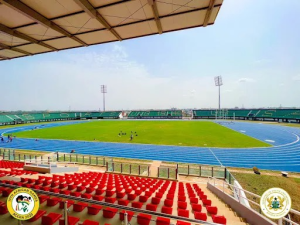Millions of children are going to school without basic hygiene facilities, and the goal of universal access to basic water, sanitation and hygiene remains “a huge challenge,” the United Nations warned on Monday
Moreover, children who pick up good hygiene habits at school can reinforce positive life-long behaviours in their homes and communities, says the report.
However, millions of children are going to school without basic hygiene facilities: over 30 per cent of schools worldwide do not provide safe drinking water; a third of schools do not provide the most basic of toilet facilities (such as septic tank, pit latrines or composting toilets); and nearly 900 million children go to schools with no handwashing facilities with soap and water.
?????????????????
Clean.
Hands.
Save.
Lives.
This is what we’re doing to get more clean water, toilets and handwashing facilities in schools → https://t.co/KRc6nVabzg pic.twitter.com/SuZ6UFp9NO
— UNICEF (@UNICEF) August 27, 2018
The annual report is produced by the World Health Organization/UN Children’s Fund Joint Monitoring Programme, or JMP, which has been monitoring global progress on drinking water, sanitation and hygiene since 1990.
It looks at the progress made towards reaching the targets of two of the Sustainable Development Goals (SDGs): Goal 6(Clean water and sanitation), and Goal 4 (Ensure inclusive and equitable quality education and promote lifelong learning opportunities for all).
Commenting on the report, Kelly Ann Naylor, Global Chief of Water, Sanitation and Hygiene at UNICEF, said that “If education is the key to helping children escape poverty, access to water and sanitation is key to helping children safely maximize their education. To neglect this is to be careless with the well-being and health of children,”
Universal access to basic water, sanitation and hygiene in schools is part of the 2030 Agenda for Sustainable Development, but achieving this ambitious target presents a huge challenge. The JMP has designed tools to make it easier to track progress across countries, towards a basic level of drinking water, sanitation and hygiene service.













